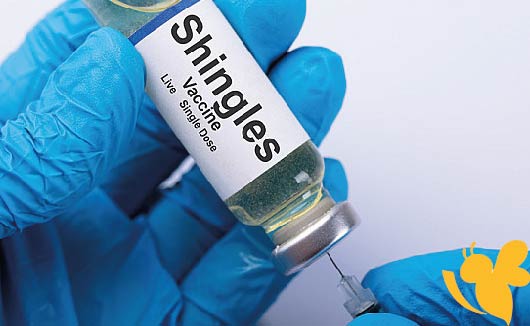The shingles vaccine has emerged as a critical component in the discourse surrounding cardiovascular health, particularly regarding its potential to lower heart attack risk. Recent studies indicate that the live zoster vaccine can reduce the incidence of cardiovascular events, including heart attacks and strokes, by approximately 23% for up to eight years in individuals aged 50 and older . This protective effect appears more pronounced among men and younger individuals under 60 years old, especially those with unhealthy lifestyle factors such as smoking and inactivity . Researchers attribute these findings to the vaccine's ability to mitigate vascular damage caused by the shingles virus.
Researchers from Kyung Hee University in South Korea led the study, published Monday in the European Heart Journal. They studied the medical records of over a million South Korean residents, finding that shingles-vaccinated people were noticeably less likely to develop cardiovascular disease than unvaccinated people. The findings are the latest to indicate that shingles is even worse for our health than currently thought.
The study examined more than 1 million people aged 50 or older with data from 2012 onward. The protective effect was particularly prominent in men, people under 60 and those who smoke, drink or aren't active, the study found.
Dong Keon Yon, a professor from the Kyung Hee University College of Medicine in Seoul, South Korea, who led the study, said in a news release that there are several reasons why the shingles vaccine may help reduce heart disease.
"A shingles infection can cause blood vessel damage, inflammation and clot formation that can lead to heart disease. By preventing shingles, vaccination may lower these risks," he explained. "Our study found stronger benefits in younger people, probably due to a better immune response, and in men, possibly due to differences in vaccine effectiveness."
Shingles occurs when the varicella-zoster virus, which causes chickenpox and then stays in the body after symptoms clear up, becomes reactivated. This can happen at times when the immune system is weakened, such as during periods of stress or chemotherapy. Shingles causes a painful rash, which can sometimes get infected or scar.
Although cardiovascular events are not typically listed as complications of shingles, scientists now know that shingles is linked to about a 30 percent greater risk of stroke and a 10 percent greater risk of heart attack, especially within the first year of infection.
Moreover, a large-scale South Korean study involving over one million participants corroborates these findings, revealing a 26% lower risk of mortality from heart disease following vaccination . The results suggest that the immunological response elicited by the vaccine may reduce vascular inflammation associated with shingles infection. This highlights an important intersection between infectious diseases and cardiovascular health that warrants further investigation .
Read more
FC Barcelona vs Inter Milan Predictions lineups and free online live stream for Champions League Semifinal Alexander-Arnold Confirms Liverpool Departure, Real Madrid Transfer SealedSarah H
Also on site :
- Cherishing moments with mum, dad
- Urgent warning issued for anyone buying last-minute Glastonbury Festival and Oasis tour tickets
- Jeff Bezos and Lauren Sánchez’s wedding planners deny ‘taking over’ Venice as protests rage

